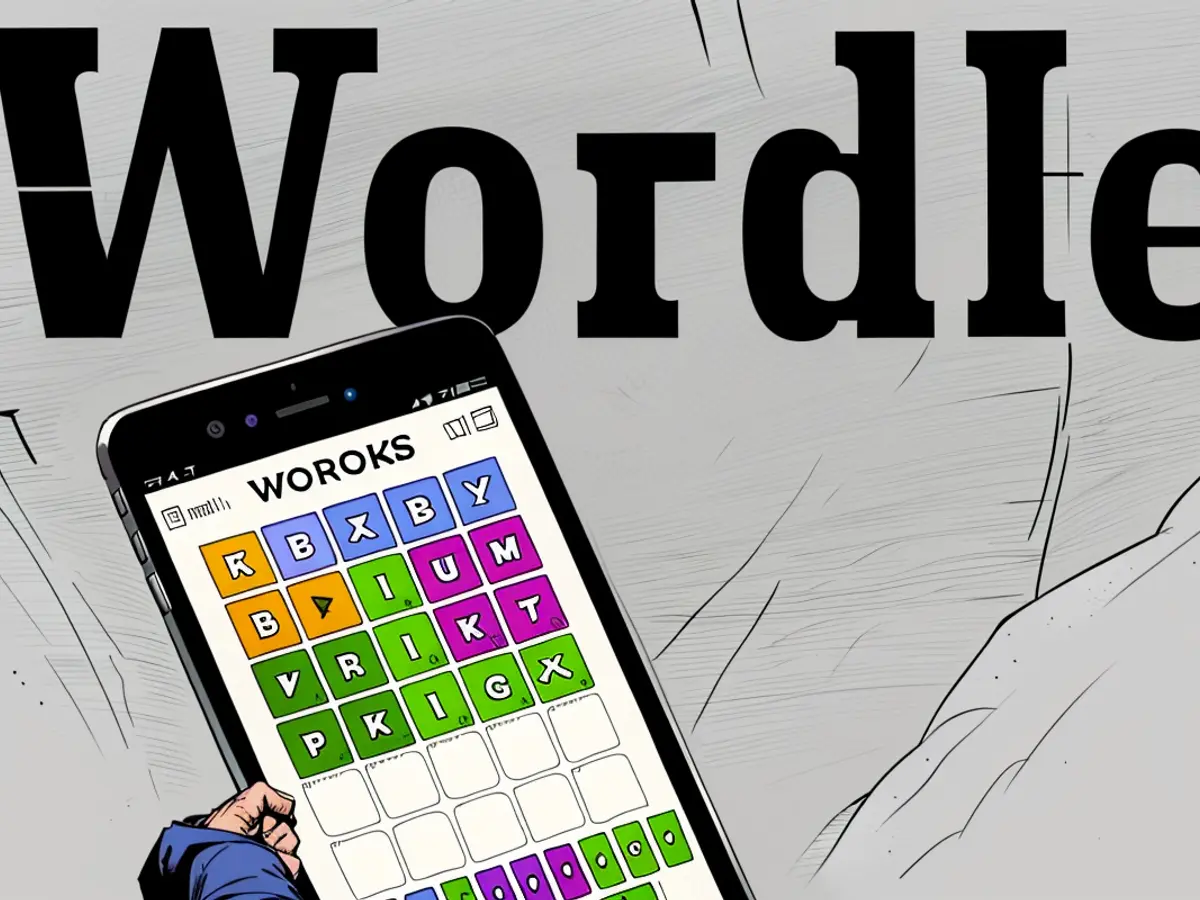The New York Times loses to Hamburg puzzle solvers
Before the Hamburg Regional Court, the "New York Times" is disputing trademark rights for the popular online word game Wordle. However, the US newspaper must currently accept a loss.
In a trademark dispute over the term Wordle for online word games, the well-known US newspaper "New York Times" suffered a loss against Hamburg puzzle maker and publisher Stefan Heine. According to a spokesperson, the Hamburg court dismissed the newspaper's claim, which aimed to prohibit Heine from using the term under the premise of prior exclusive trademark rights. The court saw no precedence.
The "New York Times" publishing company and Heine had filed trademark applications for the term Wordle on February 1, 2022 - the newspaper a Union trademark on the EU level, Heine a German word mark. The media conglomerate later filed a claim for injunction and damages. It believed its right to be higher. It also accused Heine of registering the mark solely to economically hinder.
The court did not follow this assessment in the civil proceedings. "The Union trademark of the plaintiff and the German mark of the defendant are based on the same priority and exclude mutual claims," the court declared. Heine is therefore entitled to invoke his trademark. The court also saw no reason to assume a "trademark application in bad faith."
Thus, the court's decision does not change the current situation, as both the "New York Times" and Heine can continue to offer word games under the Wordle name in Germany. However, the "New York Times" could still file an appeal.
Popular Internet Game
Under Wordle, a letter guessing game is understood, in which a solution word must be found with a maximum of six attempts. The game was invented in 2021 by a British man living in New York named Josh Walsch and was initially made freely available on his personal website. The user numbers grew rapidly within a few months.
In early 2022, the "New York Times" bought all rights to the originally English-language game from Walsch to operate it on its own website. However, at that time, numerous imitator versions in other languages were already circulating on the internet.
Crucial in the dispute between the "New York Times" and Heine was that the so-called right to the title was not already established by the inventor in 2021. He had offered the word game under the name Wordle on his private website and not in commercial traffic. Only since the move to the "New York Times" website in February 2022 has the game been commercially used.
Therefore, according to the court, a title right for the "New York Times" in Germany only existed from February 2022, which was only after Heine's mark application on February 1.
Heine is a puzzle maker based in Hamburg who, according to his own statements, supplies more than 400 media companies in the print and online sectors with puzzles of all kinds. He was also involved in the distribution of the popular logic puzzle Sudoku in Germany.
The New York Times, in its international dispute over the popular online word game Wordle, suffered a loss in the Hamburg Regional Court, allowing German puzzle maker Stefan Heine to continue using the term. Despite the opportunity for an appeal, both parties can now offer word games under the Wordle name in Germany, given the court's assessment that Heine did not register his mark in bad faith.
The New York Times' claim for injunction and damages to prohibit Heine from using Wordle based on prior exclusive trademark rights was also dismissed, as both parties' trademark applications, a Union trademark for the newspaper and a German word mark for Heine, share the same priority, resulting in mutual exclusion of claims.






